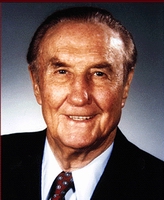Bob Inglis on Education
Education
“No education in the second kick of a mule.”
--U. S. Senator Ernest F. “Fritz” Hollings
For a number of years now we have supposed that Washington can fix our education challenge. The most recent kick of that mule was No Child Left Behind, an ill-conceived piece of Republican legislation that guarantees duplicative federal regulations and leaves us hoping for some quick fix.
But there is no quick fix.
Solving our education challenge in South Carolina starts with parents. We must value education and convince our children that school is important. We must support the authority structure in our schools and expect teachers and administrators to seek the best for our children. We should involve ourselves in the education of our children and do all in our power to provide for them a stable home environment.
Deference to the school’s authority structure brings responsibility for administrators. Administrators who hide behind senseless rules and regulations, fearing the loss of their jobs if they make a single mistake, should be guaranteed a pink slip. Professionals who dare to take risks--certain that the will fail on occasion--should be rewarded with respect and acclaim. Administrators who think they have graduated beyond the level of parents should graduate to other occupations. Administrators who welcome parental involvement should be recognized for the success they will foster. Administrations that believe in utopias of heterogeneous grouping should spend some time in the real world where leaders emerge from homogenous groups, making crucial contributions in their spheres of influence.
Teachers should have a passion for teaching and get out if they don’t. Better to have empty classrooms than to have the uninspired leading the uninformed.
Society should be willing to pay for education because ignorance costs more. And we should be willing to celebrate the successes because there are many. Graduates of our public schools are doing well at the best universities in this country. Citizenship is being taught and kids are caring about their communities. Discipline is being achieved and sportsmanship is being spread. Differences are respected and a commitment to pluralism brings unity.
Challenges remain, but even the slightest introspection saves us from false accusation of unilateral failure by the public school system. “Give me an intact American family,” a leading high school principal once said to me, “and I’ve got some hope here. Without that, there’s really very little I can do.”
Restoring the American family is the key to educational progress. Educational progress is the key to innovation. Innovation is the key to making this century another American century.
“No education in the second kick of a mule.”
--U. S. Senator Ernest F. “Fritz” Hollings
For a number of years now we have supposed that Washington can fix our education challenge. The most recent kick of that mule was No Child Left Behind, an ill-conceived piece of Republican legislation that guarantees duplicative federal regulations and leaves us hoping for some quick fix.
But there is no quick fix.
Solving our education challenge in South Carolina starts with parents. We must value education and convince our children that school is important. We must support the authority structure in our schools and expect teachers and administrators to seek the best for our children. We should involve ourselves in the education of our children and do all in our power to provide for them a stable home environment.
Deference to the school’s authority structure brings responsibility for administrators. Administrators who hide behind senseless rules and regulations, fearing the loss of their jobs if they make a single mistake, should be guaranteed a pink slip. Professionals who dare to take risks--certain that the will fail on occasion--should be rewarded with respect and acclaim. Administrators who think they have graduated beyond the level of parents should graduate to other occupations. Administrators who welcome parental involvement should be recognized for the success they will foster. Administrations that believe in utopias of heterogeneous grouping should spend some time in the real world where leaders emerge from homogenous groups, making crucial contributions in their spheres of influence.
Teachers should have a passion for teaching and get out if they don’t. Better to have empty classrooms than to have the uninspired leading the uninformed.
Society should be willing to pay for education because ignorance costs more. And we should be willing to celebrate the successes because there are many. Graduates of our public schools are doing well at the best universities in this country. Citizenship is being taught and kids are caring about their communities. Discipline is being achieved and sportsmanship is being spread. Differences are respected and a commitment to pluralism brings unity.
Challenges remain, but even the slightest introspection saves us from false accusation of unilateral failure by the public school system. “Give me an intact American family,” a leading high school principal once said to me, “and I’ve got some hope here. Without that, there’s really very little I can do.”
Restoring the American family is the key to educational progress. Educational progress is the key to innovation. Innovation is the key to making this century another American century.



<< Home